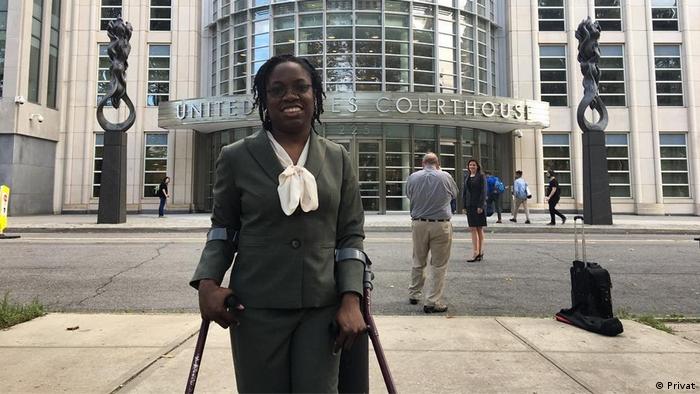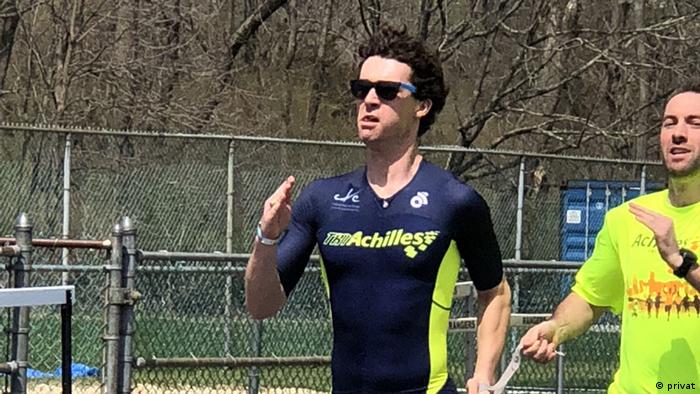Blog by Carol Glazer, President, NOD
When my first son was born, I remember thinking, as parents do, about the promise of what the future would hold for him.
With Jacob though, I discovered that the future can begin as a quivering promise.
Jacob was born with hydrocephalus and would undergo a dozen brain surgeries in his first year — another two dozen over the course of his life. It all took an emotional toll.
Years later I was diagnosed with parental Post Traumatic Stress Disorder, or PTSD, and associated anxiety and depression. Normally we relate PTSD with soldiers who experience combat. But parents, especially mothers, of children with serious health conditions can suffer from the condition.
I have learned a great deal from my experience, about myself and about the toll mental health challenges can take in the workplace. I understand how important it is for organizations to recognize that mental illness is an issue their staff struggles with regularly.
Roughly 1 in 5 U.S. adults – nearly 50 million people – experiences mental illness each year. More than half of Americans will deal with mental illness at some point in their lives.
And that figure was a baseline before COVID 19. A poll in April by the Kaiser Foundation shows that about half of adults feel the pandemic is impacting their mental health. And one in five says it’s already had a major impact.
Our great task is to find ways to help our employees who are struggling with these difficulties and allow them to thrive. When I discuss my experience, I emphasize the importance of empathy. If there is one thing that companies can take away in May from Mental Health Awareness Month, it is that.
It was the empathy among colleagues at work that helped me deal with the anxiety and the stress associated with my diagnosis. To bend an old saying, they helped me realize that while time heals all wounds, it also leaves marks that have to be attended to.
Part of empathy is helping our staff work through their own experiences around mental illness. It has to start with an understanding of the pain of mental illness.
Our Corporate Leadership Council member companies are doing amazing things; they are creating work cultures that allow employees to be open about mental illness, giving them permission to share their stories. They understand this allows managers to create more inclusiveness and reap the benefits from diverse talents and perspectives.
With COVID we need to be even more cognizant of employees facing mental health challenges. Because of the economic trials, fears of a life-threatening illness and continuing isolation, people have no lack of stressors.
Most of us lived through 9/11 and know that in the wake of the disaster, we healed ourselves by coming together, joining with our families, our neighbors, our co-workers. We can’t do that with social distancing. Also, 9/11 had a start and an end. What fuels anxiety is that we don’t know when the end of this is pandemic will occur or what it will even look like.
More than ever we need to create work cultures that make it okay to reach out and ask a colleague in distress if they are all right. This is especially important now, when we are not physically together – and in some cases may be permanently teleworking.
We have to create ways for people to feel safe, where they have the confidence that they don’t need to conceal their experiences. Rather they can talk about them, get treatment for them, and even use them to advantage.
I have been able to do that with my wonderful colleagues at the National Organization on Disability. Between knowing I can be honest at work, and watching Jacob grow into a funny, caring, lovable young man, I find strength.
We know that with the pain of mental illness comes resilience; there is a greater ability to cope with adversity, understand vulnerability, and show compassion. All of that drops to the bottom line for a company and helps those of us dealing with mental health challenges become assets to our employers, not liabilities.
Carol Glazer is President of the National Organization on Disability, the nation’s oldest civil rights organization representing all of America’s 57 million people with disabilities. She is a speaker and subject matter expert on issues regarding the employment of people with disabilities and has addressed audiences at national conferences, corporate forums and higher education institutions, among others.
Carol holds a Master’s Degree in Public Policy from Harvard’s John F. Kennedy School of Government and in 2012, was awarded an honorary Doctorate of Humane Letters by Allegheny College for her work on behalf of individuals with disabilities. She has two children, one of whom was born with hydrocephalus and has physical and intellectual disabilities.

 NEW YORK (May 19, 2020) – The National Organization on Disability (NOD) today announced Mark Templin, president and CEO of Toyota Financial Services, as the newest member to join its Board of Directors. Mr. Templin will join 19 other civic and corporate leaders from across the country working to advance disability inclusion in the workforce.
NEW YORK (May 19, 2020) – The National Organization on Disability (NOD) today announced Mark Templin, president and CEO of Toyota Financial Services, as the newest member to join its Board of Directors. Mr. Templin will join 19 other civic and corporate leaders from across the country working to advance disability inclusion in the workforce. Blog by Priyanka Ghosh, Director of External Affairs, NOD
Blog by Priyanka Ghosh, Director of External Affairs, NOD


 NOD is proud to partner with the companies honored by DiversityInc for their leadership in workplace diversity. Many have something in common — they also are leaders in disability inclusion.
NOD is proud to partner with the companies honored by DiversityInc for their leadership in workplace diversity. Many have something in common — they also are leaders in disability inclusion.